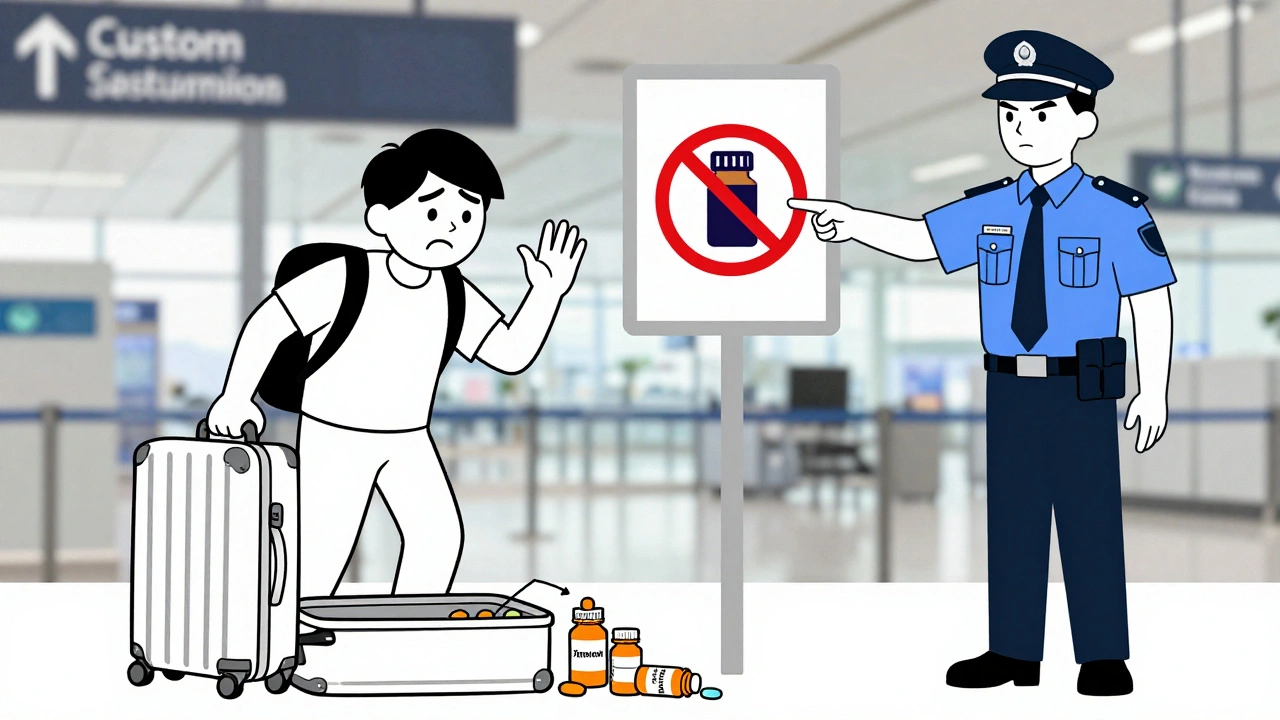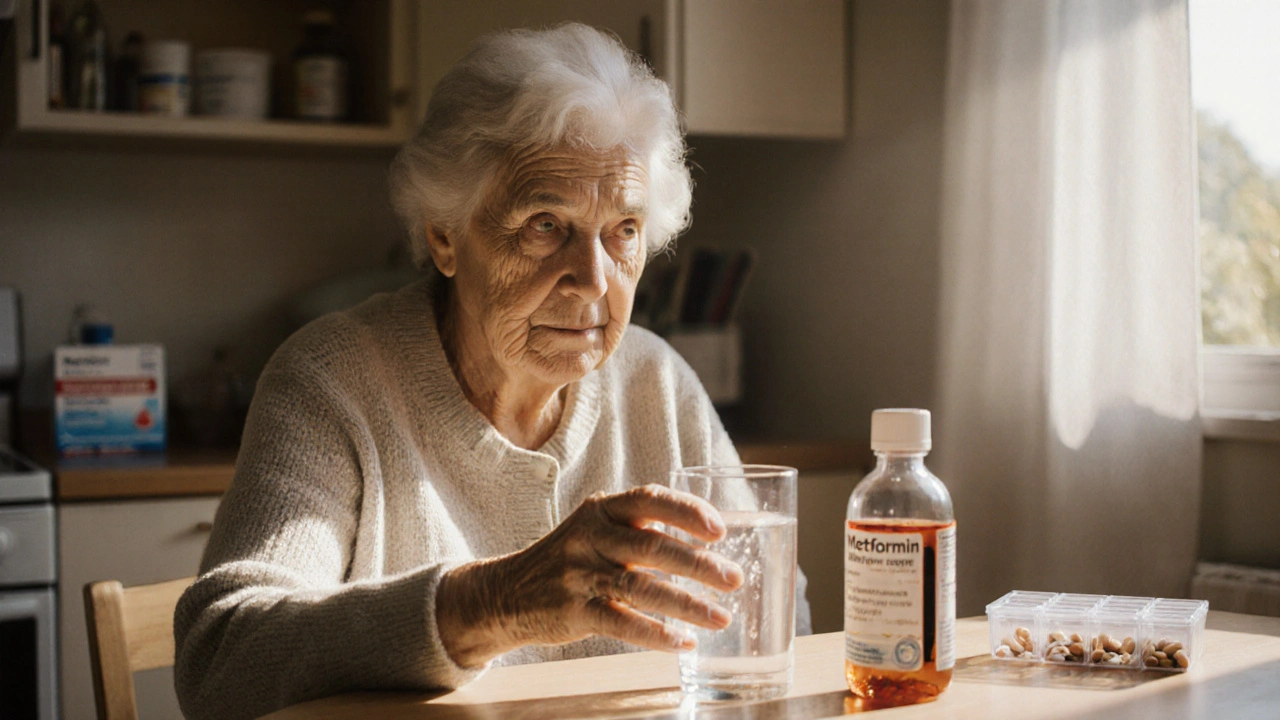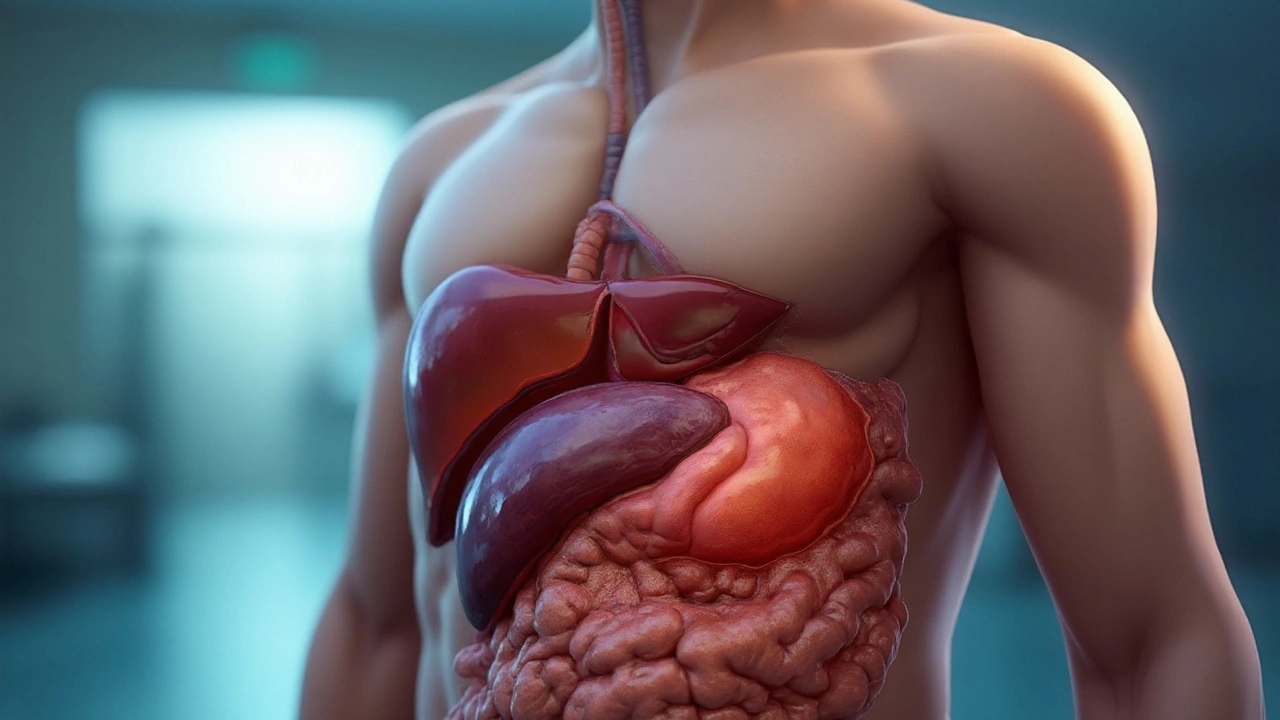Elavil vs Alternatives Decision Quiz
1. What is your primary treatment goal?
2. Which side‑effects are you most concerned about?
3. Are you currently taking another serotonergic medication (SSRI, SNRI, MAOI)?
Elavil (Amitriptyline) is a tricyclic antidepressant that has been prescribed for major depressive disorder and neuropathic pain since the early 1960s. Typical daily doses range from 25mg to 150mg, the elimination half‑life spans 10‑50hours, and common side effects include dry mouth, sedation, and weight gain.
Patients and prescribers often wonder whether a newer drug, a different class, or a non‑prescription option might work better. This guide pits Elavil against the most frequently considered alternatives, breaking down mechanism, dosing, safety, and real‑world use cases so you can decide what fits your health profile.
Quick Takeaways
- Elavil works by blocking the reuptake of serotonin and norepinephrine, offering strong analgesic effects for nerve pain.
- Nortriptyline and Desipramine are close cousins with fewer anticholinergic side effects.
- SSRIs like Sertraline are gentler on the gut but lack the pain‑relieving punch of TCAs.
- SNRIs such as Duloxetine hit both serotonin and norepinephrine pathways, bridging antidepressant and neuropathic pain treatment.
- Gabapentin and Pregabalin address pain via calcium‑channel modulation, bypassing the mood‑altering profile of antidepressants.
How Elavil Works - The Pharmacology Snapshot
The drug blocks the reabsorption (reuptake) of two key neurotransmitters - serotonin and norepinephrine - increasing their levels in the brain and spinal cord. This dual action not only lifts mood but also dampens pain signals traveling along peripheral nerves. The effect on histamine receptors adds a sedating quality, which many patients find helpful for sleep disturbances linked to chronic pain.
Top Alternatives - Who They Are and What They Do
Nortriptyline is a secondary amine tricyclic antidepressant that shares the serotonin‑norepinephrine reuptake inhibition of Elavil but has a shorter half‑life (15‑30hours) and reduced anticholinergic burden. Doses typically sit between 25‑100mg daily, making it a popular switch for patients who can’t tolerate dry mouth or constipation.
Desipramine is another tricyclic antidepressant, distinguished by its stronger norepinephrine focus. This translates into a slightly better profile for attention‑deficit symptoms but similar risks for cardiac side effects. Usual dosing runs 50‑200mg per day.
Sertraline is a selective serotonin reuptake inhibitor (SSRI) approved for depression, anxiety, and obsessive‑compulsive disorder. While it spares norepinephrine, its safety window is wider - gastrointestinal upset and sexual dysfunction are the most common complaints. Daily doses range from 50‑200mg.
Duloxetine belongs to the serotonin‑norepinephrine reuptake inhibitor (SNRI) class, marrying the mood‑lifting power of SSRIs with the pain‑modulating benefits of TCAs. FDA‑approved for major depressive disorder, generalized anxiety, diabetic neuropathy, and fibromyalgia, it is taken at 30‑120mg daily.
Pregabalin is a calcium‑channel α2‑δ ligand that reduces excitatory neurotransmitter release. It shines in diabetic peripheral neuropathy, post‑herpetic neuralgia, and generalized anxiety disorder. Starting dose is 75mg twice daily, titrating up to 300mg twice daily.
Gabapentin works via the same calcium‑channel pathway as Pregabalin but has a shorter half‑life and requires more frequent dosing (300mg three times daily, up to 1200mg three times). It is a staple for neuropathic pain and restless‑leg syndrome.
Side‑Effect Landscape - What to Watch For
Every medication carries a risk profile. Below is a quick risk‑versus‑benefit snapshot for each drug.
| Drug | Mechanism | Typical Dose (mg) | Half‑Life (hrs) | Key Indications | Common Side Effects |
|---|---|---|---|---|---|
| Elavil (Amitriptyline) | Serotonin & norepinephrine reuptake inhibition | 25‑150 | 10‑50 | Depression, neuropathic pain, migraine prophylaxis | Dry mouth, sedation, weight gain, orthostatic hypotension |
| Nortriptyline | Serotonin & norepinephrine reuptake inhibition (secondary amine) | 25‑100 | 15‑30 | Depression, chronic pain | Less anticholinergic; dizziness, insomnia |
| Desipramine | Primarily norepinephrine reuptake inhibition | 50‑200 | 12‑20 | Depression, ADHD adjunct | Cardiac conduction changes, insomnia |
| Sertraline | Selective serotonin reuptake inhibition | 50‑200 | 26‑32 | Depression, anxiety, OCD, PTSD | Nausea, sexual dysfunction, insomnia |
| Duloxetine | Serotonin‑norepinephrine reuptake inhibition | 30‑120 | 12‑14 | Depression, diabetic neuropathy, fibromyalgia | Dry mouth, hypertension, nausea |
| Pregabalin | Calcium‑channel α2‑δ ligand | 75‑600 (split dose) | 6‑8 | Neuropathic pain, generalized anxiety | Dizziness, edema, weight gain |
| Gabapentin | Calcium‑channel α2‑δ ligand | 300‑1200 (split dose) | 5‑7 | Neuropathic pain, seizures, restless‑leg | Somnolence, ataxia, peripheral edema |

Choosing the Right Drug - Decision Framework
When you sit down with your clinician, consider these three axes:
- Primary Goal: Is relief from depression the main target, or is neuropathic pain the pressing issue?
- Side‑Effect Tolerance: Do you have a history of cardiac arrhythmias (steer away from TCAs) or chronic constipation (avoid strong anticholinergics)?
- Drug Interactions: Are you on anticoagulants, SSRIs, or other serotonergic agents that could trigger serotonin syndrome?
For pure mood elevation with minimal sedation, an SSRI like Sertraline often wins. If both mood and pain need coverage, Duloxetine or a low‑dose TCA (Nortriptyline) may be more efficient. When pain dominates and you want to stay clear of antidepressant stigma, Gabapentin or Pregabalin become attractive options.
Special Populations - What the Data Say
Older adults experience amplified anticholinergic effects from TCAs, increasing fall risk. A 2023 geriatric cohort study (American Geriatrics Journal) showed that patients over 70 on Elavil had a 1.8‑fold higher incidence of falls versus those on Duloxetine. For pregnant patients, most TCAs are category C, while Sertraline holds a category B rating, making it the safer choice when antidepressant therapy cannot be avoided.
Patients with hepatic impairment require dose adjustments for drugs metabolized by CYP2D6 (Amitriptyline, Nortriptyline, Desipramine). In contrast, Pregabalin is excreted unchanged by kidneys, simplifying dosing in liver disease but demanding caution in renal insufficiency.
Practical Tips for Starting or Switching
- Start low, go slow: Begin Elavil at 10mg at bedtime; titrate every 3‑4 days based on tolerability.
- When moving from a TCA to an SSRI, allow a 2‑week washout to avoid serotonin syndrome.
- Monitor blood pressure and ECG after the first few weeks if you stay on a TCA.
- Track sleep quality - many patients find the sedative effect helpful initially but disruptive later.
- Keep a side‑effect diary; subtle changes (e.g., mild constipation) often signal the need for a switch before major issues arise.
Where to Go Next - Further Reading Paths
This article sits in the broader Medications cluster, linking upward to the Health and Wellness umbrella. If you want to dive deeper, consider exploring:
- “Understanding Tricyclic Antidepressants: Mechanisms and Risks” - a deep dive into the whole TCA family.
- “SNRIs for Chronic Pain” - evidence‑based guide to duloxetine and venlafaxine.
- “Non‑Pharmacologic Strategies for Neuropathic Pain” - complementary therapies that pair well with meds.
Frequently Asked Questions
Can I take Elavil for sleep without a depression diagnosis?
Off‑label use for insomnia is common because Elavil’s antihistamine effect induces drowsiness. However, physicians usually prefer dedicated hypnotics due to the risk of weight gain, anticholinergic side effects, and dependence on a daily antidepressant.
What makes Nortriptyline gentler than Amitriptyline?
Nortriptyline is a secondary amine TCA, meaning it has less affinity for muscarinic receptors. That translates into fewer dry‑mouth, constipation, and urinary retention issues, while still providing decent mood and pain relief.
Is duloxetine better than Elavil for diabetic neuropathy?
Clinical trials (e.g., 2022 Diabetes Care) showed duloxetine achieved a 30% reduction in pain scores, outperforming low‑dose TCAs in patients without cardiac disease. Duloxetine also avoids anticholinergic effects, making it a first‑line choice for many clinicians.
Do gabapentin and pregabalin interact with antidepressants?
Both agents are cleared renally and have minimal CYP450 involvement, so they rarely cause pharmacokinetic interactions with SSRIs, SNRIs, or TCAs. The main caution is additive CNS depression if taken together, so dose adjustments may be needed.
Can I switch from Elavil to sertraline without a washout period?
Because both drugs affect serotonin, a brief 1‑2week washout is advisable to lower the chance of serotonin syndrome, especially if the sertraline dose will be therapeutic (≥100mg). Your doctor can tailor the overlap based on your response.









16 Comments